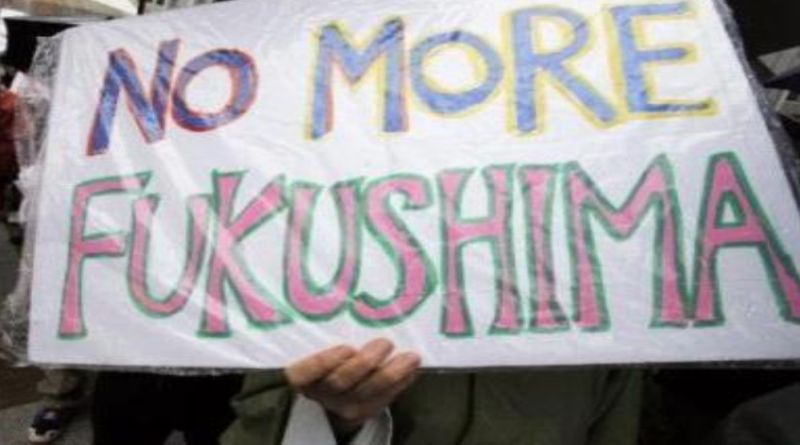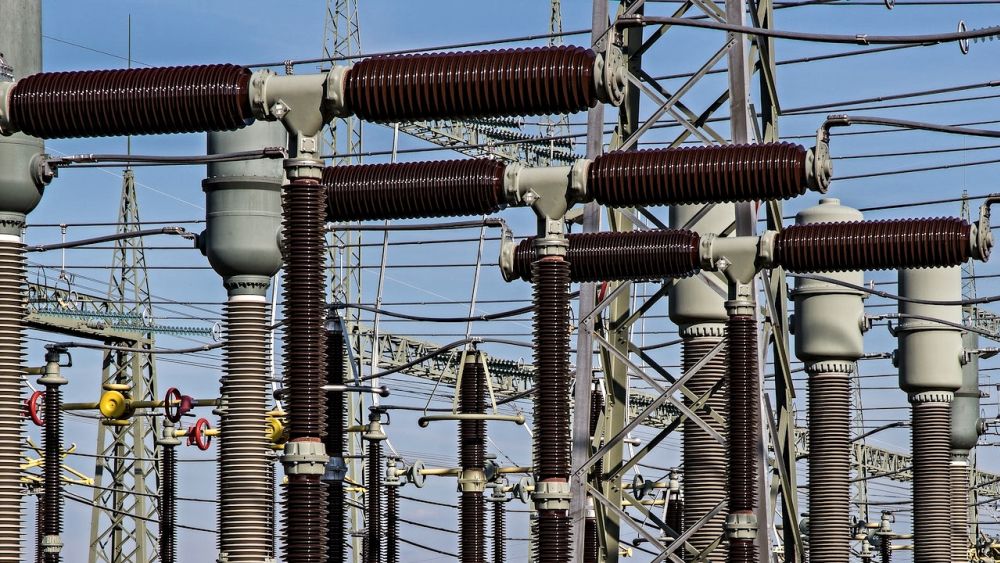Fukushima
Surprisingly, for many Japanese the disaster has a different connotation – it’s seen as having launched a renaissance - Franck Guarnieri

image by: TIMES NOW
HWN Suggests
Stop Comparing Fukushima to Chernobyl
Everybody who gets cancer in Japan over the next 40 years will no doubt blame their misfortune on radiation from Fukushima Daiichi. This will probably be the case for many other diseases too, ranging from heart failure to nose bleeds—as happened after the catastrophic explosion in 1986 at Chernobyl, a Soviet nuclear power station in Ukraine. This would be entirely understandable but will have no basis in science.
On April 12, 2011, a month after the tsunami struck, Japan’s Nuclear and Industrial Safety Agency announced that it was raising the grading of the Fukushima Daiichi event from five to seven—the highest level on the International Nuclear and Radiological Event Scale (INES).…
Resources
 Japan begins releasing treated Fukushima waste water into the Pacific Ocean
Japan begins releasing treated Fukushima waste water into the Pacific Ocean
Treated radioactive water reserves near the Fukushima Daiichi nuclear power plant are now slowly dispersing into the Pacific Ocean. The initial release is the first part of a decades’ long plan to handle the hundreds of millions of gallons accumulated since the 2011 meltdown disaster. Although numerous scientific organizations and experts deem the project extremely safe—the treated waters actually contain tritium isotope levels far below global contamination standards—residents near the nuclear plant have continuously voiced concerns about potential reputational damage to the local fishing industries.
 The science behind the Fukushima waste water release
The science behind the Fukushima waste water release
If Japan was able to remove all radioactive elements from the waste water before piping it into the ocean, perhaps it would not have been so controversial. The problem is being caused by a radioactive element of hydrogen called tritium, which can't be removed from the contaminated water because there is no technology to do it. Instead, the water is diluted.
 We unpacked Japan's plan to release Fukushima wastewater
We unpacked Japan's plan to release Fukushima wastewater
The release is also scheduled to happen over the course of decades—not all at once.
The cherry trees of Fukushima
Surprisingly, for many Japanese the disaster has a different connotation – it’s seen as having launched a renaissance.
The Fukushima disaster was not the turning point many had hoped
Instead of spurring reform, the nuclear accident bred disillusionment.
After Five Years, What Is The Cost Of Fukushima?
The disaster at the Fukushima Daiichi Power Plant following the devastating tsunami in Japan on the 11th of March in 2011 has proven costly in many ways – politically, economically and emotionally. Strangely, the costs that never materialized were the most feared, those of radiation-induced cancer and death. No radiological health effects have yet to result from the Fukushima disaster – neither cancers, deaths nor radiation sickness – although the WHO models indicate a slight increase is statistically possible. No one received enough dose, even the 20,000 workers who have worked tirelessly to recover from this event.
Book review: Fukushima
Even if you have never visited Japan, this is a mesmerising story, one I hope more people will revisit, even as memories fade of watching black waves inundate Japanese coastal cities, sweeping away cars, office towers and homes.
Five Years Later, Cutting Through the Fukushima Myths
Radiation expert Andrew Karam, who covered the disaster for Popular Mechanics in 2011 and later traveled to study the site, explains everything you need to know about Fukushima's legacy and danger five years later.
Fukushima Fallout: It's No Chernobyl, We Hope!
Time will tell how the long term effects of Fukushima will ‘fall out’. The stark reality is what occurred in Japan could happen anywhere! So, be ready for the next one.
Fukushima Forever – the Pacific Ocean is Dying
The Pacific Ocean is dying. I’ve been warning about the Fukushima Dai-ichi nuclear disaster for four years and now its deadly consequences are more apparent every day. Fukushima’s weapons-grade radioactive aerial fall-out and contaminated ocean currents are bioaccumulating in phytoplankton; the bottom (beginning) of the food chain. As well, it weakens the Pacific marine life’s immune systems making them more susceptible to bacterial, viral and parasitic infestation leading to death and ultimately species extinction by exacerbating existing conditions like climate change, ocean warming, pollution, over-development and over-harvesting. Life in and around the Pacific Ocean is dying.
Fukushima Nuclear Cleanup Is Just Beginning a Decade After Disaster
A resolution to the crisis at the Fukushima Daiichi nuclear power plant remains a distant goal a decade after three of its reactors melted down. The most challenging part of the cleanup—removing molten nuclear fuel from each reactor—has yet to begin because of high radiation inside the reactor buildings, putting the targeted decommissioning of the plant by 2051 into doubt.
Fukushima: Japan’s new PM won’t delay release of contaminated water into ocean
Japan has requested help from the International Atomic Energy Agency to ensure the discharge meets global safety standards, including treating the wastewater so its radioactivity levels are below legal limits.
Fukushima’s positive legacy
The Fukushima disaster seems to have acted as a trigger, catalysing states to take a new approach towards energy generation worldwide. One of the few countries that seems immune is Russia which, despite its huge renewable energy resources, has set itself a low target of generating 4% of its electricity from renewables by 2020.
Fukushima’s Worst-Case Scenarios
Much of what you’ve heard about the nuclear accident is wrong.
How Radioactive Is the Pacific, Really?
This month, an alarming report said Fukushima radiation had hit American shores. The truth is, it’s only in trace amounts. The real problem is that it’s nobody’s job to check ever again.
Is Living in a Nuclear Evacuation Zone Good for You?
Fukushima’s legacy may be mental health problems, not cancer.
Japan Will Release Fukushima’s Radioactive Water Into the Ocean
The released water will contain the radioactive material tritium, which the government has said poses little risk to human health when diluted. But fishermen have opposed the government’s plan, citing reputational damage that this discharge could cause on fishing products from Fukushima Prefecture.
Japan’s $320 Million Gamble at Fukushima: An Underground Ice Wall
Built by the central government at a cost of 35 billion yen, or some $320 million, the ice wall is intended to seal off the reactor buildings within a vast, rectangular-shaped barrier of man-made permafrost. If it becomes successfully operational as soon as this autumn, the frozen soil will act as a dam to block new groundwater from entering the buildings. It will also help stop leaks of radioactive water into the nearby Pacific Ocean, which have decreased significantly since the calamity but may be continuing.
Japan’s Tsunami and Nuclear Disaster Unleashed a $300 Billion Effort to Rebuild a Hinterland
The cost of reconstruction has almost doubled in the 10 years since the disaster, as the area’s population declines and the economy wanes.
Meltdown: What Really Happened at Fukushima?
Before the tsunami arrived, workers say the quake left its aging Unit 1 reactor crippled
Radiation in the Ocean
The West Coast of the United States seems under siege by negative environmental news: earthquake predictions, oil spills, drought, critically diminished water supply, wildfires, and numerous accounts of unusual coastal events: algae blooms, whale strandings, cancer in seals, collapse of fish stocks, and more. One argument has been the effect of radiation leaking from the three nuclear power plant reactors shut down by the earthquake and resultant tsunami tidal wave that inundated Fukushima, Japan in 2011...
Six years after Fukushima, much of Japan has lost faith in nuclear power
The Japanese public has lost faith in nuclear safety regulation, and a majority favors phasing out nuclear power. However, Japan’s current energy policy assumes nuclear power will play a role. To move forward, Japan needs to find a new way of making decisions about its energy future.
Ten years later, here's what Fukushima's damaged reactors look like today
Cleanup is in its early days, and some communities near the disaster are still unable to return
What You Should and Shouldn’t Worry about after the Fukushima Nuclear Meltdowns
Fresh meltdowns at the devastated nuclear facility are unlikely but years of slow, dangerous labor to repair the existing damage are guaranteed.
‘There’s No Town Left’: Fukushima’s Eerie Landscapes
A hulking new sea wall, for instance, built to prevent future tsunamis hurtling into the plant, stands sentry on the nearby Pacific coastline. It’s a jarring feature in a pastoral region once known for its peaches and a thick type of ramen noodle.
 Stop Comparing Fukushima to Chernobyl
Stop Comparing Fukushima to Chernobyl
Both were tragedies, but one was much worse than the other.
10 Years After Fukushima Disaster, This Nurse May Be the Region’s Best Hope
Many of Rina Tsugawa’s peers have left for jobs in cities, an outflow common to rural Japan but accelerated by the tsunami and nuclear meltdowns in Fukushima. Ms. Tsugawa has different plans.
3 ways the Fukushima nuclear disaster is still having an impact today
Four years ago, after a devastating tsunami left 18,000 Japanese dead, Japan faced another, potentially bigger, catastrophe: 300,000 people had to be evacuated as several reactors of the Fukushima Daiichi nuclear power plant started to melt down on March 11, 2011. In 2015, has the world forgotten the threat that was posed by Fukushima?
World Nuclear Association
The Great East Japan Earthquake of magnitude 9.0 at 2.46 pm on Friday 11 March 2011 did considerable damage in the region, and the large tsunami it created caused very much more. The earthquake was centred 130 km offshore the city of Sendai in Miyagi prefecture on the eastern cost of Honshu Island (the main part of Japan), and was a rare and complex double quake giving a severe duration of about 3 minutes.

Introducing Stitches!
Your Path to Meaningful Connections in the World of Health and Medicine
Connect, Collaborate, and Engage!
Coming Soon - Stitches, the innovative chat app from the creators of HWN. Join meaningful conversations on health and medical topics. Share text, images, and videos seamlessly. Connect directly within HWN's topic pages and articles.
















